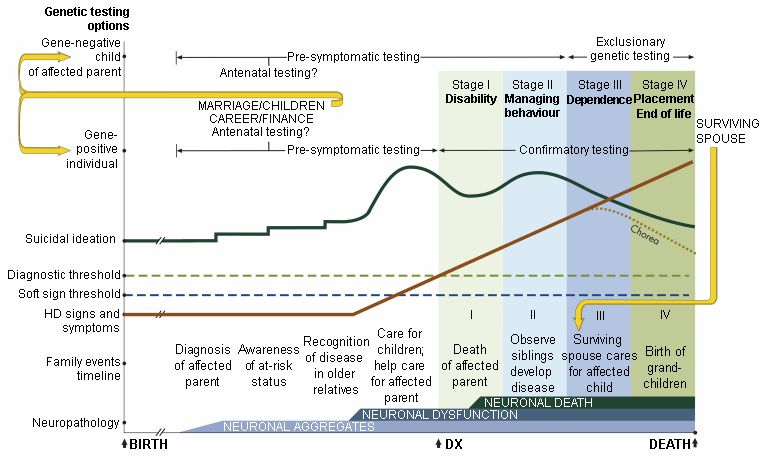Prognosis
Depression should improve with therapy. Dose reduction or tapering may be appropriate after sustained improvement is seen, although a low threshold should exist for reintroducing therapy in view of the ongoing organic cause (Huntington's disease) of the depression. Many people with Huntington's disease stay on antidepressants for the rest of their lives once treatment has been commenced. Chorea may lessen in severity in some patients with disease progression and, as such, occasional dose reductions in antichoreic therapy are warranted to see whether lower doses are effective or still needed. Behavioural problems may lessen or fluctuate as cognitive impairment worsens. Other symptoms of Huntington's disease (e.g., dysphagia, dysarthria, impaired gait, cognitive dysfunction, and incoordination) are progressive.
The duration of disease is approximately 20 years from time of diagnosis to time of death. The sequential evolution of events and ultimately the recurrent nature of Huntington's disease, from the perspective of a child born to an affected parent, can be depicted pictorially. Events within an affected family may occur in different sequences for different individuals.[Figure caption and citation for the preceding image starts]: Life cycle in Huntington's disease (HD)Walker FO. Huntington's disease. Lancet 2007 Jan 20;369(9557):218-28. Used with permission [Citation ends].
Use of this content is subject to our disclaimer